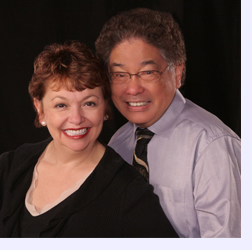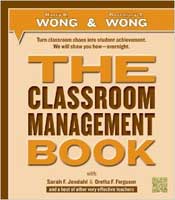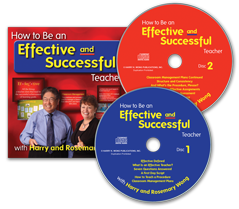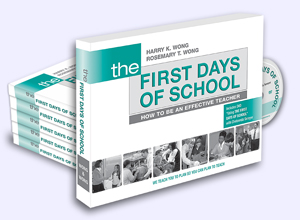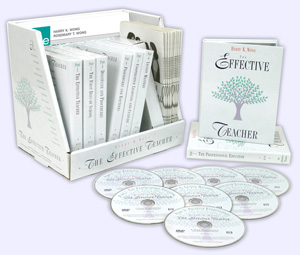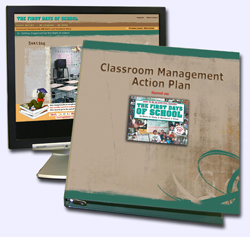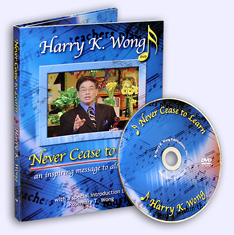|
 |

Special to the Gazette
April 2014
When Students Succeed, Teachers Succeed
A well-organized classroom is a
They Tried to Make Her Cry
In Manning, you’ll also find third-year teacher Leah Fairs teaching a variety of subjects and students at Paul Rowe Jr./Sr. High School. Her introduction to education came on the heels of graduating with science and education degrees from the University of Lethbridge, near the Montana border. While she had content knowledge to go into the classroom, she knew she was struggling with classroom management. During one of her preservice trainings she was put into a tiny classroom with 37 students with a reputation for “breaking” student teachers. Leah remembers, “They tried their hardest to make me cry in class. Fortunately, they failed to achieve that goal.” Bellwork, Her First Insight She recalls that her biggest problem was in starting class. She would start the class by taking attendance. Since the students had nothing to do, they wandered around the room, talking loudly to their friends, and goofing off. This made taking attendance more difficult. After attendance, which took over 5 minutes, she would have to spend another five minutes attempting to bring the class to order. The students had so much energy; it was hard for them to focus on the learning for the day. During her studies at the university, Lowell Leffler, Deputy Superintendent of the Prairie Rose School Division, came to talk to the students about setting up a successful classroom. (Lowell’s school division uses The First Days of School as part of their new teacher induction program.) His lecture prompted Leah to buy and study The First Days of School. Through Lowell, she had the good fortune of meeting Bev Wahl, a teacher in the Prairie Rose School Division. We featured Bev in a previous Teachers.net article. Leah observed Bev’s classroom with envy and noted how smoothly the class was running. It was Bev who gave Leah her first insight into Bellwork and getting the students working as soon as they entered the classroom. In addition, she showed Leah how to organize and create a classroom management plan. Obstacles or Opportunities Leah brought to Manning her classroom management plan and the confidence of knowing she could get her classroom running as smoothly as Bev’s class, but she had health problems she had to deal with. Leah has Crohn's disease, an autoimmune disorder where the immune system attacks the intestines. She describes herself as a “walking medical experiment” with a recent major surgery for her illness. She also had major jaw surgery six years ago and as a child, nearly died from heart problems. She lets her students know about her medical history, and it has opened lines of communication between her and her students. She shares, “Being the biology teacher does not qualify me to be a medical doctor, but students will still ask me questions about their medical issues or their family member’s medical problems.” The students know why she misses class, that she may be in the hospital, and being a small town, word gets around very fast since many of the parents work at the hospital. Leah says, “I would also like to think that I can teach my students something from being sick. I have brought in images of the inside of my intestines to show my students. Fortunately for me, being a science teacher, it fits perfectly with the curriculum, as we were studying human health in science and the digestive system in biology. They were all fairly grossed out, but many found it interesting. “I also had a student ask me the other day, when I was obviously feeling sick, in spite of my efforts to pretend not to be, why I didn't just have the class watch movies and do nothing when I felt sick. I responded that if I did that every time I felt sick, every class, every day from last December to now would have been spent watching movies, and no one would have learned anything, and there are times in life when you have to suck it up, “The student looked a little surprised, but nodded and said that it made sense, and appeared thoughtful for a bit. “I hope that she, and others, are able to learn that. It is a lesson that some students find hard to understand, that you have to do things that you really don’t want or don’t feel like, or don’t think you can sometimes do. They might realize it if they see it being carried out every day rather than me simply telling them that it’s a part of life.” Getting It Done in the Classroom With the knowledge of a plan, Leah greets her students every day, as they walk into the classroom and when she sees them in the hallways. Sometimes they tease her because she will have said, “Good Morning” to them three times in a day, even in the afternoon. As the students walk into the room she always says, “Good Morning, (name)” or “Good afternoon, (name).” When there is a group of them, Leah refers to them as “ladies” and/or “gentlemen.” Leah shows great care for her students. She will often ask about one of their hockey games, hunting successes, or work. As Manning is a small town, she sees her students everywhere and is able to work on building a relationship with them. She will chat with them about non-school related topics when they are working at a store or waiting tables. She also tries to remember which ones are sick and have upcoming medical appointments so that she can ask how their appointments went and if they are feeling better. Leah likes to use her love of hunting to help bring interest into the classes as most everyone in this area hunts, too. In fact, Leah admits, “I will make deer calls in the middle of class—buck, doe, fawn, and distressed fawn. I have also been asked to judge elk bugling contests and have even had to confiscate cow elk calls that were being used in class.” Leah has a standard farewell to the class. After she dismisses them with, “Have a good day, see you all tomorrow,” she tells them, “No fires, no explosions, and no injuries!” Some of them smile and say, “No promises!” Leah teaches the full range of students from the college-bound to students with autism, FASD (fetal alcohol syndrome disorder), reading and writing learning disabilities, comprehension disabilities, behavior issues, and students who are brilliant, but not in a pencil and paper way. As Leah says, “There are those who take the academic courses and those who chose to take the ‘easy’ science. There are also those eager to do well, and those who fight you every step of the way when it comes to doing their work. Leah’s Classroom Management Plan Managing is running an organization, not disciplining an organization. Leah is a good example of a teacher who understands this concept. Students learn in a well-organized classroom. Regretably, too many teachers erroneously believe that classroom management is about student behavior, so their focus is on discipline. Leah’s focus is on organization and consistency. This is the classroom management plan she presents to her students: Miss Fairs's Classroom Procedures I am here to help you succeed. To do that, I will teach you school and life procedures. A procedure is not a rule. A procedure is what you do to get a task done, such as baking a cake, skating in a hockey game, managing the till at a store, taking lecture notes, and beginning work in class. Learning procedures is learning responsibility and As you all know, I have a condition called Crohn’s Disease. To help me stay healthy, I follow a set of procedures my doctor has prescribed for me. To help you succeed, I have prescribed some classroom procedures. Entering the Room
Entering the Room Late
Catching Up When Absent
Getting the Class’s Attention
Getting Help/Miss Fairs's Attention
Handing in Assignments
Tests and Quizzes
Class Questions and Discussion
After a question is answered, all sticks go back into the cup and you will have the opportunity to answer another question. Leaving the Classroom to Use the Washroom or Get a Drink
How to Discuss an Issue with Miss Fairs If You Are Unhappy or Don’t Like a Situation
No decisions will be reconsidered or explained if you are rude or disrespectful in any way. If you are rude or disrespectful, you will be asked to sit down and come up with a better way to make your request, depending on the severity of the rudeness or disrespect. Exit Card
Dismissal Procedure
Schoolwide Behavior Plan Student behavior at Paul Rowe Jr./Sr. High School is made much easier for all teachers—and the students—because of a schoolwide behavior plan called SOLE (Respect for Self, Others, Learning and Environment). SOLE is the EBS (Effective Behavior Supports) Matrix for the school, and Leah is a member of the EBS committee.
Click here to see the full EBS (Effective Behavior Supports) matrix for the school. The matrix describes the expectation for student behavior in every classroom and in specialized classrooms and areas, such as the science lab. The staff introduces SOLE at the beginning of the year and continues to reaffirm good behavior throughout the year. SOLE works well for the teacher, as they are the same behaviors in every class and there is no need for every teacher to develop their own discipline plan. The plan is schoolwide. There is CONSISTENCY of the expected behaviors and the students know whether the choices they make are appropriate or inappropriate. There are no consequences. The staff continues to reaffirm good behavior. Content Procedures Leah incorporates procedures in her instruction. Every science class must begin with training in safety procedures. Rather than tell the students what to safely do and what not to do, she has them read, watch, and learn about safety with WHMIS (Workplace Hazardous Materials Information System), (HHPS) Hazardous Household Product Symbols), and MSDS (Materials Safety Data Sheets), and then create a PowerPoint presentation as if they were teaching laboratory safety. She gives them a rubric to guide them in making their PowerPoint slides. Click here to see the rubric.
Students Want to Succeed For over a decade, we have successfully taught thousands of teachers how to create a CONSISTENT environment where all children can succeed.
She says, “I am far from a perfect teacher; I have a very long way to go. Looking at some of my classes, they can appear to be a bit of a ‘Gong Show’ sometimes. That is the nice thing about this job though; there is always room to improve.” As Bev shared with Leah, Leah now shares with you how you can bring consistency to your classroom so students can succeed. And if you want to learn first-hand from Leah, go visit her. There is an airstrip in Manning!
|
|||||||||||||||
|
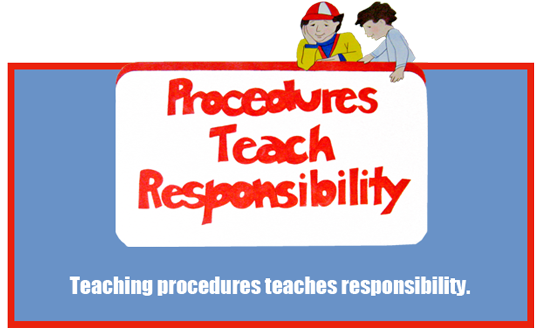
 It's March as we write this column. The chill of winter still blankets most of North America. Far north in the province of Alberta, you’ll find Manning with a population of 1,164, living in 461 homes, and going to two public schools. The high for the day is -13o C or 9o F.
It's March as we write this column. The chill of winter still blankets most of North America. Far north in the province of Alberta, you’ll find Manning with a population of 1,164, living in 461 homes, and going to two public schools. The high for the day is -13o C or 9o F.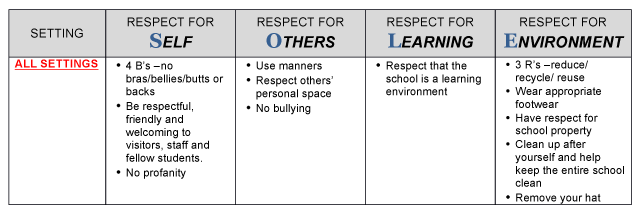
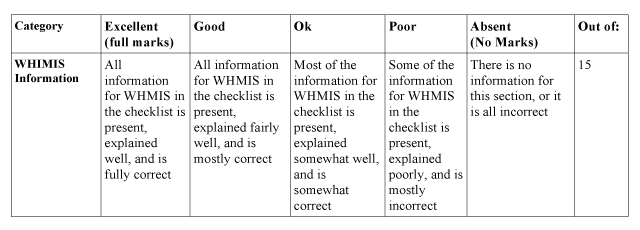
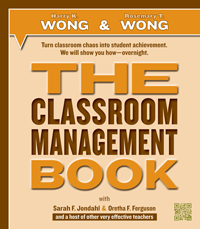 You may not be as fortunate as Leah was to have a Bev Wahl in your life. But, don’t despair. We’ve assembled all of the Bev Wahls in education and feature their techniques in our new book, THE Classroom Management Book. It’s being printed (in Canada, but far from Manning!) as we write this column. For our Teachers.net readers, we are offering it at special price of $19.45 for this month only. Use the code
You may not be as fortunate as Leah was to have a Bev Wahl in your life. But, don’t despair. We’ve assembled all of the Bev Wahls in education and feature their techniques in our new book, THE Classroom Management Book. It’s being printed (in Canada, but far from Manning!) as we write this column. For our Teachers.net readers, we are offering it at special price of $19.45 for this month only. Use the code  Because she learned the concept of organization, Leah is a happy and successful teacher after just three years of teaching, and she is looking forward to her future.
Because she learned the concept of organization, Leah is a happy and successful teacher after just three years of teaching, and she is looking forward to her future. 